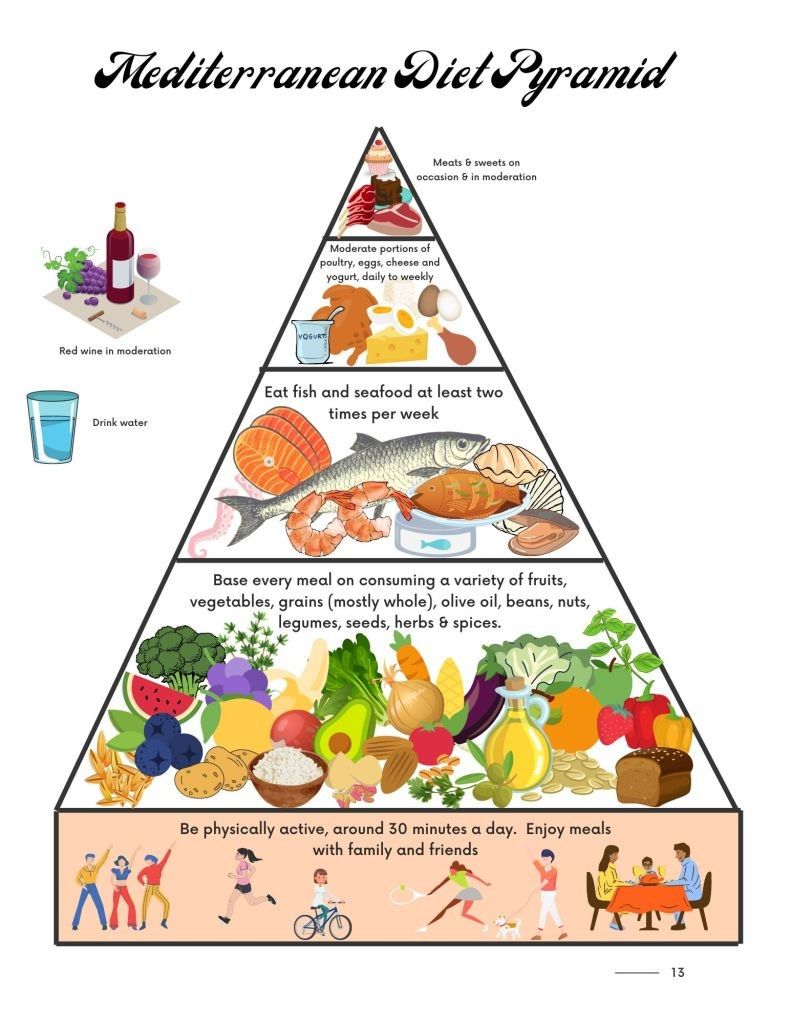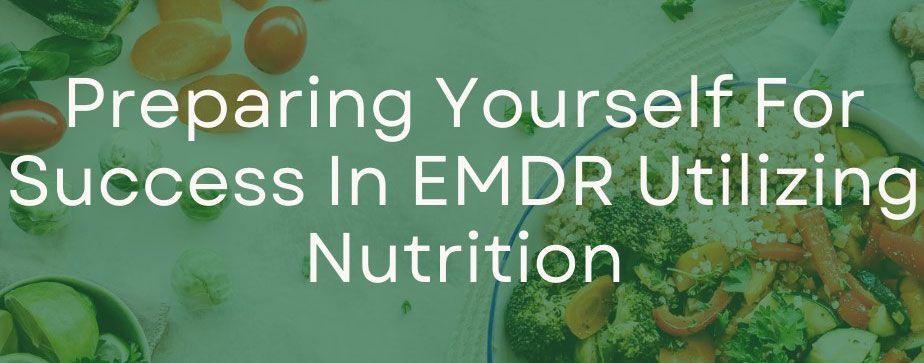Introduction
Just as a marathon runner focuses on nutrition and replenishing their bodies after a long race, someone who is experiencing an emotional marathon can benefit from focusing on the nutrients they need to ensure a full and sustainable recovery. Our bodies need energy to heal, and when we are under stress and/or recovering from a traumatic event, nutrition matters. As I will explain in this blog post, our nutritional choices may even impact the efficacy of mental health treatments that we seek, including EMDR therapy.
Studies show that increased periods of stress can cause GI issues like diarrhea, constipation, disruptions in our microbiome, and even leaking gut. Most of these issues are caused by chronic inflammation that can destroy the villi of our intestines that help us absorb nutrients. Humans may also cope with trauma by not eating at all, by choosing food for comfort, or by using food as a replacement for comfort that we haven’t or aren’t receiving.
Although it’s normal to choose foods for comfort and these foods can be part of a healthy dietary pattern, eating too much of them too often without eating whole foods can put us at further risk of nutrient deficiencies, and inflammatory disorders like cardiovascular disease, IBS, and diabetes.
Nutrition, EMDR, & Mental Health
Eye Movement Desensitization and Reprocessing (EMDR) is an effective therapeutic intervention for trauma. EMDR uses bilateral stimulation to relax the patient. Once relaxed, patients are encouraged to clearly remember and process difficult memories from traumatizing past events. During these therapy sessions, very strong emotions often arise, and these emotions and associated thoughts require an intense amount of physical energy and exertion to reprocess.
So, how and what do we need to eat well when we are recovering from trauma and preparing for EMDR and/or when joining an IOP or PHP program? The short and simple answer is to ensure you are eating enough of the foods that make you feel good throughout the day.

Notice which foods and drinks stabilize your energy levels, glucose levels, and mood. What foods do the opposite, and leave you feeling low in energy, sluggish, and uncomfortable? All of us deserve to eat foods that make us feel good regardless of how we have been treated or what we have been through. Typically, when people pay attention to the interaction between their diet and their mental health/mood, they tend to notice that they feel the best—and therefore can do some of their best work—when they follow these habits and routines:
1. Eat every 3-5 hours or at least three meals per day.
If we are not eating, our bodies will physically lack the energy to do the hard emotional work required to heal. Remember that “calories” are just a measure of chemical energy, energy our brain and body desperately need to effectively reprocess traumatic events. Most people will get hungry every 3-5 hours but can train their bodies not to get hungry by not eating a normal breakfast, lunch, and dinner. Being overly hungry releases cortisol, the stress hormone. Retrain your body by eating breakfast, lunch, and dinner regularly, and don’t wait until you are famished or hungry to eat. Always carry snacks with you just in case.
2. Eat 1-3 servings of whole foods at every meal.
If and when you are able, try to choose fruits, vegetables and whole grains to include in your meals. This helps ensure that your body will get enough antioxidant species to protect against and solve inflammation occurring due to high cortisol levels, increased stress, and/or associated trauma. These foods also contain fibers that ensure regular bowl movements, a healthy microbiome, and healthy cholesterol levels.
3. Eat a source of protein at every meal.
Eating lean protein, about 20 grams per meal, can help us maintain satiety, stable blood sugars and stable energy levels between meals. Protein also provides essential micronutrients for building and rebuilding structural components to our body like white blood cells that comprise our immune system. Protein is also integral for many helpful and necessary hormones and chemical messengers our bodies need for appropriate cell-to-cell communications. Protein also provides essential iron, other minerals, and vitamin B, which is essential for energy metabolism.
4. Eat a source of carbohydrates at every meal.
I am not sure why we are not more excited in general about our carb foods! Carbs are the only energy source that we eat that can be directly made into the molecule that our brain and muscles can use for energy. Paying attention to how many carbs you are getting each day and at each meal might help explain fatigue and brain fog. Research indicates that getting around 5-6 carb counts (15 grams per count) per meal consistently can help your body regulate your mood. More or less carb counts may be needed depending on the person, activity level and another medical diagnosis.
5. Eat a source of fat at every meal.
Our bodies are not able to absorb four of our essential vitamins (Vitamin K, Vitamin E, Vitamin D and Vitamin A[JH1] ) without eating fat. Critically, these four vitamins also function as antioxidants to free radicals that cause cellular damage and put us at risk for chronic illnesses. Our essential fats like omega-3 and omega-6, both polyunsaturated fats, also support proper brain functioning and cell functioning. Fats in general also make us feel satisfied and can help ensure we are getting enough energy at every meal.
6. Include some fun foods (guilt not included).
Including fun food or foods you eat for comfort in moderation can also support mental health as the behavior affirms that we have needs for food that are not always just nutritional. Eating for taste and enjoyment is real and very important to living a full enjoyable life, in which we prioritize and normalize our own self-care and fulfillment of our needs.
7. Increase socialization opportunities with your mealtime.
Processing events, emotions, and thoughts that have been traumatic is not an easy thing. As you start your EMRD therapy, you may begin to feel an increase in isolation. You may also want to look for opportunities to eat with people in your support system. Sharing meals with loved ones can not only increase your motivation to eat regularly but can also help you feel less isolated and more connected.
This is also why joining a group therapy opportunity or even a PHP or IOP program while doing EMDR can be essential to recovery. Connecting with those who have had similar experiences, thoughts, and feelings can increase the feeling of connection and decrease the feelings of being alone in the struggle.

Conclusion
By having more stable energy and providing consistency for your body throughout the day and your time in therapy, you can better concentrate on the ideas, beliefs, and thoughts that are essential to EMDR therapy. For example, in EMDR therapy, you will be asked to picture an object that helps you compartmentalize your traumatic thoughts and emotions during your session as you exit. You also will be asked to identify upsetting memories and thoughts with a number, identifying these things correctly is essential as you would not want to work on memories that are very triggering right out of the gate. These processes take intense self-knowledge and concentration that our brain and body can only perform with all nutrient needs being met.







 In CA By O360®
In CA By O360®